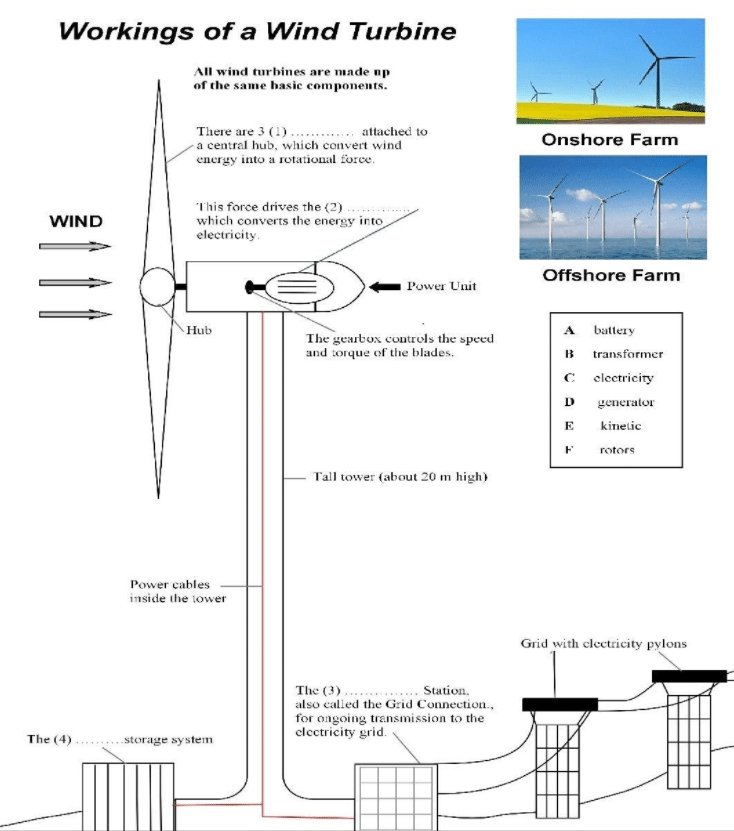In this article we’ll be speaking about Part 4 of the IELTS Listening Exam.
We will be addressing the following points:
- What you’ll hear in Part 4;
- Some sample questions and transcripts;
- Explanations of some questions;
- How Part 4 is graded.
We’ll also explain how GlobalExam can help you achieve test success.
You could study for the other parts of the IELTS Listening Section, such as the IELTS Listening Part 1, the IELTS Listening Part 2, and lastly the IELTS Listening Part 3.
So let’s go!
What Will I Hear In Part 4 of the IELTS Listening Test?
The final part of IELTS Listening is a short academic lecture, around five minutes in length.
It is the most difficult section of the test, and unlike the other sections, there is no break in the middle. Although the speaker does pause for a few seconds about half way through the recording.
Do not forget to study and practice all sections of the IELTS exam to succeed.

Sample Questions and Exercises for the IELTS Listening Part 4
The most common task type in part 4 is completing notes. Once again, this puts you in the shoes of an international student, since note-taking is what students generally do in academic lectures. However, there can also be other task types, such as multiple choice, completing a summary, flow chart completion and short-answer questions.
You can see an example of exercise 4:
Questions 31 – 35
Complete the table below.
Use NO MORE THAN 3 WORDS for each answer.

Let’s have a look at some sample questions with extracts of the listening. You will get a better idea of what Part 4 of the IELTS Listening involves.
Sample Question #1
As we said, Part 4 is the most difficult part of the Listening test. The vocabulary is usually at a higher level. On top of it, you need to be able to concentrate on a complicated, possibly new subject, for 5 minutes. In addition to this, you’ve already been listening for the last 25 minutes, so you need to be prepared.
Always make sure that you read the instructions carefully for each part of the test. In this example, the instructions are as follows:
Which opinion does each group express?
Select the correct letter, A, B or C next to questions 1-4.
- Modern Western society
- The ancient Greeks
- Practitioners of manifestation
You may choose any letter more than once.
For example, if you write “Modern Western Society” and not the letter “A”, your answer will be incorrect. Below you have an extract from the listening with a sample question:
Often people look for ways they can add more meaning to their lives. Many people develop a desire to make a difference, to realise their ambitions and leave a lasting impression on society.
These inherent desires are nothing new and can be traced back to ancient times. The early Greeks believed that gods or fate controlled the destiny of mankind. Whatever was fated to happen was going to happen and the future was inevitable.
Gods or fate control the future.
- Modern Western society
- The ancient Greeks
- Practitioners of manifestation
These questions are sometimes difficult to answer as you understand the information, but you missed who thought it! It’s important to practice before the test, so that you’re familiar with listening for different types of information.
Sample Question #2
IELTS often uses scientific subjects in both the Reading and the Listening sections. it does especially take place in the more complicated parts of the test.
Let’s start by talking about how important the greenhouse effect is. It is important for life on Earth because it maintains our planet at a comfortable temperature. This means that the temperature fluctuates between day and night on the stay within a habitable range.
While other planets in our solar system are either freezing cold or scorching hot, the temperatures in Earth’s atmosphere are relatively mild and stable. At this temperature, all of the interacting processes that we need for life can take place. Life depends upon liquid water and the most important factor is that at this temperature, water is in liquid form.
As you can see, you are given a lot of information. If you can, try to read the questions before Part 4 starts therefore you know what you’re listening for.
Here’s a question associated with this audio:
Life needs this to survive.
- Trapped light
- Liquid water
- Vast temperature changes
The answer itself isn’t too difficult, but it’s hidden among lots of other information. You need to train to listen out for specific information.
Sample Question #3
You may find that the questions are presented on a diagram to complete, rather than multiple choice for example:

Again, try to read the questions first so that you have an idea of what you need to listen out for.
In this example, the extract below comes 2 minutes into the audio. Therefore, it’s easy to lose your concentration before the key information is presented.
I will use this diagram to explain the workings of a wind turbine in simple terms. As you can see, the blades, called rotors, are mounted on huge towers which are over 20 metres tall.
This is necessary because the force of the wind is far stronger higher up and there is less buffeting. There are 3 rotors attached centrally to a rotor hub, which in turn is connected to a power unit. Take a closer look at this unit and you can see it contains a generator, represented here by an oval shape with 3 interior horizontal lines, connected to a gearbox, the smaller black oval shape in the centre.
One technique to practice is to listen for expressions like: “I will use this diagram” or “as shown on the diagram.” Until the speaker starts speaking about the diagram, you don’t need to listen quite so attentively. It is not an easy exercise but practice makes it possible.
Sample Question #4
For the next sample, the instructions are a little more complicated:
1. Complete the summary. Choose one answer for each question.
2. Choose four answers from the box and write the correct letters A-G next to questions 1 – 4.

A letter is requested here and not the word. Moreover, you have some answers that you might not use.
You can see with the following extract that the vocabulary level is much higher than the words you’ll come across in Part 1 or 2 of the IELTS Listening paper:
Many zoonotic diseases are spread by inhaling, ingesting, or having skin contact with spores, for example in the case of Anthrax. Eating infected meat or drinking infected milk is one of the main modes of transmission and having close or direct contact with infected animals where diseases can transmit through respiration of droplets in the air, can also aid the transmission of zoonoses, as can being bitten or scratched by them.
By practicing the IELTS Listening and Reading papers, you can improve your vocabulary range. This will help you understand more and work faster.
Sample Question #5
For the last sample question, the subject is procrastination. IELTS likes subjects about focus, concentration and so on.
Firstly, a quick review of what procrastination is. Basically, it is putting things off, delaying, doing other things because your task at hand is too difficult, or overwhelming.
So the “fight or flight” mechanism in our brains (which is our instinctive physiological response to a threatening situation, and makes us either resist forcibly or run away) is activated and we sidestep the task at hand to get away from that complicated situation via Facebook, YouTube, or a sudden need for tidiness and an impulse to rearrange your CD collection in alphabetical order.
As you can see, the language is more informal than the previous example, but the vocabulary is still at a high level!
When we procrastinate our brains perceive a difficult task or obligation as something…
- inappropriate.
- dangerous.
- unimportant.
Before taking the IELTS test, you should also study suffixes and prefixes. You may see “inappropriate” in the question but hear “not appropriate” in the audio.
Take some time on Part 4 because it is not an easy section of the IELTS Test. However, with practice and preparation it definitely gets easier. On our e-learning platform we have numerous sample questions with the transcripts and corrections!
How Is the IELTS Part 4 of the Listening Test Marked?
As with the previous three sections, there are 10 questions in exercise 4, worth one mark each. The same rules apply as elsewhere; you need to
- Spell all word(s) correctly
- Use appropriate punctuation
- Check the word limit, and never write more than the maximum number of words allowed.
Train For the IELTS Exam Online With Globalexam
GlobalExam is an expert on language tests and offers online preparation for IELTS. You can practise online thanks to many exercises and mock exams available with the correction.
You’ll find not only mock exercises and exercises, but also grammar and vocabulary exercises. All of this will both extend and increase your IELTS score. The grammar and vocabulary sections are designed especially for the test. Therefore, you can ensure that what you’re learning will help you.
You can also inform us of your test date and desired result. We’ll create a study program for you to help you achieve your target score. You can also have access to statistics about your study and progress, so you know what to study next. We don’t only give you the answers, but we also explain them – a key point in improving your score!
What else can GlobalExam help you with?
If you’re interested in studying for another test, we’re also here to help. We have preparation work for 27 tests in 5 different languages – Spanish, Mandarin, German, English and French. Our e-learning platform boasts 30,000 questions which are regularly updated.
So give GlobalExam a try!



